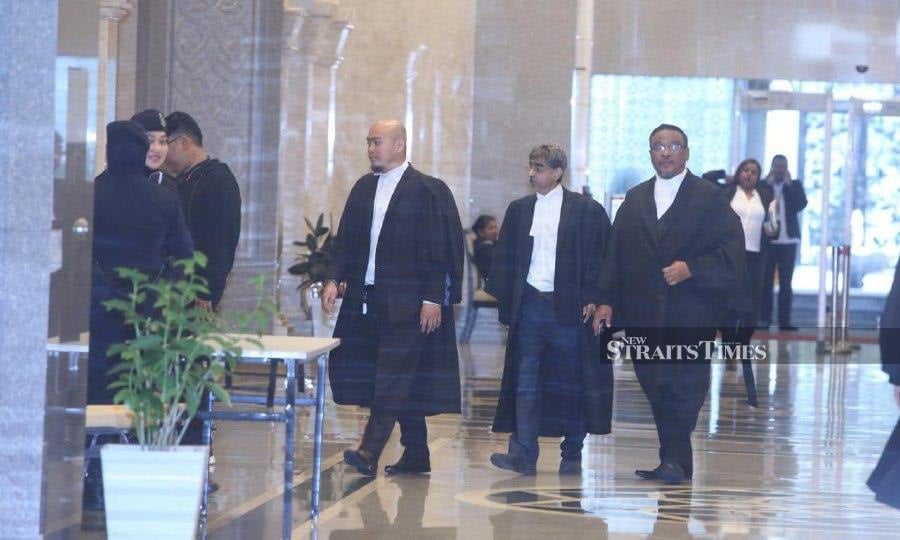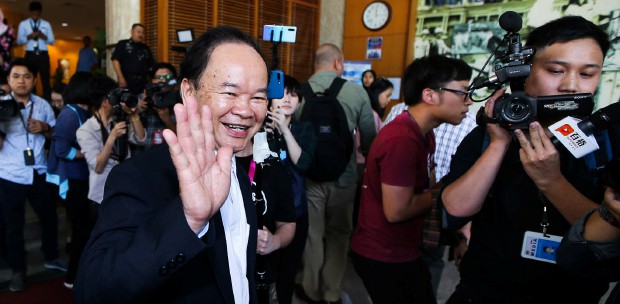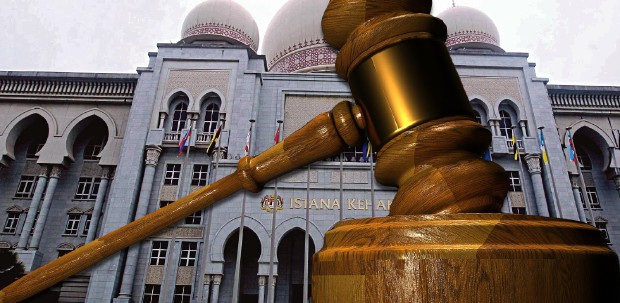PUTRAJAYA: The use of Chinese and Tamil languages as mediums of instruction in national or vernacular schools do not contravene the Federal Constitution, the Court of Appeal ruled today.
A three-member bench chaired by Datuk Supang Lian said schools are neither statutory nor public authorities and the use of such languages (Chinese and Tamil) had existed even before the promulgation and adoption of the Federal Constitution.
The court said this in its unanimous decision in dismissing an appeal by four organisations seeking a court declaration that the existence of vernacular schools and the use of Chinese and Tamil languages as medium of instruction were against the Constitution.
Other members of the bench were Judge Datuk M. Gunalan and Datuk Azizul Azmi Adnan.
Azizul, when reading the judgment, said the effects of the education policy are matters relating to the policy of government and the manner in which those policies are implemented.
"Even if those policies run contrary whatever may be perceived to be a desirable outcome for example - if it is argued that the existence of the national type schools has contributed to the increased polarisation of society - it would be quite beyond the pale for the courts to intervene.
"It is not the role of the courts to review the policies of government.
"The policy and intent of parliament are simply aids to the court in interpreting legislation, and in the context of the present case, to determine whether the legislation in question is inconsistent with the terms of the Constitution, as alleged by the plaintiffs," he said.
Azizul said the use of Tamil and Chinese in national type schools as a medium of instruction is protected by the proviso in Article 152(1)(b) of the FC which mandates the government preserve and sustain the use and study of languages of other communities in the country.
"In our considered judgment, this proviso has the effect of "grandfathering" the use of other languages at the time of the proclamation of Merdeka, due to the words "preserve and sustain.
"It cannot seriously be argued that the framers of the Constitution had intended for schools employing a language other than Malay or English as a medium of instruction to be unlawful and contrary to the terms of the Constitution.
"If this were the case, such schools would have been shut down, abolished or converted upon the adoption of the Constitution," he said.
On Dec 29, 2021, the then High Court judge Datuk Mohd Nazlan Mohd Ghazali dismissed the lawsuit brought by four parties - the Islamic Education Development Council (Mappim), the Confederation of Malaysian Writers Association (Gapena), Ikatan Muslimin Malaysia (Isma) and Ikatan Guru-Guru Muslim Malaysia (I-Guru).
The appellants, who filed the suit in December 2019, were seeking a declaration that the existence of vernacular schools goes against the Federal Constitution.
However, Nazlan in his judgment ruled that the educational institutions are not a public authority, and that their existence is protected by the Federal Constitution.
The organisations are appealing against Nazlan's decision.
They had named the Malaysian Chinese Language Council, Chinese educationist groups Dong Zong and Jiao Zong, Persatuan Thamizhar Malaysia, Persatuan Tamilar Thurunal (Perak), Persatuan Gabungan Kebajikan Guru-Guru Bersara Sekolah Tamil, the Malaysian Chinese Language Council, Persatuan Malaysia Tamil Neri Kalagam, Gabungan Persatuan Bekas Pelajar Sekolah Tamil Malaysia and SMJK Chong Hwa as the defendants.
Apart from the government, four political parties — MIC, MCA, Gerakan and Parti Bumiputera Perkasa Malaysia — have also joined in as defendants.






